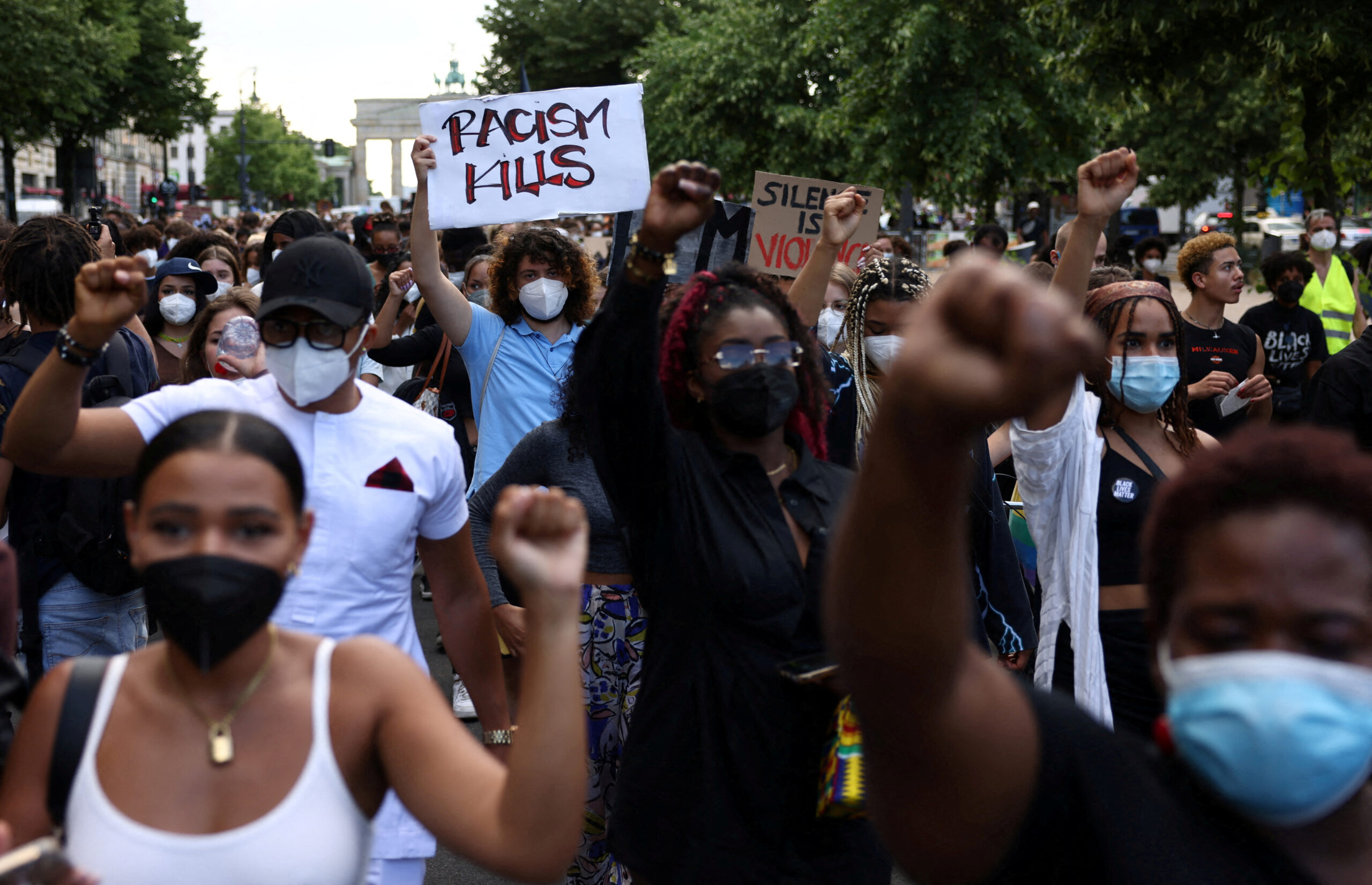Germany
Germany’s Hidden Struggle With Anti-black Racism

Germany’s Hidden Struggle With Anti-black Racism:
Germany, known for its growth and openness, suffers a significant and often overlooked issue: racism against Black people. Over one million Black, African, and Afro-diasporic people live in the country, a worrying number. Germany and 20 of the 38 OECD nations refuse to collect racial and ethnic identification data, making this problem primarily obscure.
Quartz’s shocking title, “Statistically speaking, Black people in Germany don’t exist,” underlines the lack of official data on this demographic. Due to the Holocaust and World War II, Germany is apprehensive about racial categorization, yet not gathering data has serious consequences. It masks racism against Black people and undermines American efforts to counter it.
Afrocensus Unveils The Depths Of Anti-black Racism
The first primary assessment of racism against Black Germans was the 2020 “Afrocensus.” The German Federal Anti-Discrimination Agency, EOTO, and Citizens for Europe (CFE) surveyed 6,000 German Black, African, and Afro-diasporic persons. The November 2021 results demonstrate ingrained prejudice against Black people.
Exoticization is expected, with 90.4% of responders having their hair grabbed without permission. Unfortunately, 79.9% report receiving sexualized comments about their appearance or ‘origin’ on dating apps. 56.7 percent believe German police unjustifiably inspected them, and 85 percent think they encounter bias ‘often’ or ‘ very often.’ In Germany, 42% felt discriminated against by the government and everyday life.
Germany’s Urgent Call To Action Against Systematic Racism
According to the Afrocensus research, German institutions are incredibly racist against Black people. A disturbing 93.3 percent of respondents said they do not believe when reporting their racist experiences, highlighting the difficulty in a white-dominated culture.
These worrisome numbers need immediate response. Afrocensus advises the German government to construct guidance centers for persons impacted by racism against the Black community, university departments for Black studies, and community centers to build an empowering infrastructure.
Data collection must also be improved. Recognizing Black, African, and Afro-diasporic populations via government data collecting is crucial. This follows the UN Office of the High Commissioner for Human Rights advice to collect and publish race- and ethnicity-disaggregated statistics.
In a nation with a white supremacist society and culture, tackling these systemic challenges is a must. Germany must face its unseen enemy by admitting its prejudice against Black people, enacting targeted measures, and promoting inclusion and understanding.
Exposing Microaggressions: Daily Struggles Of The Black Community
In addition to statistics, the Afrocensus study examines everyday microaggressions against German Blacks. These subtle yet pernicious deeds perpetuate prejudice. Many respondents reported being exoticized, with 90.4% reporting having their hair grabbed without permission. Dehumanization, where people are stereotyped, underlies this casual disrespect for personal space.
Even worse, 79.9% of dating app users reported getting sexualized remarks on their looks or ‘origin.’ Racial prejudice thrives in the internet world, where anonymity is valued. These microaggressions reinforce damaging preconceptions and promote a culture of bias beyond physical contact.
Read Also: Rising Tide Of Mainstream Racism In Germany
Policing And Discrimination: The Unequal Weight Of Authority
The Afrocensus report’s massive difference in law enforcement contacts is troubling. 56.7 percent of respondents said they were unjustifiably stopped by police, indicating racial profiling. Worse, 85 percent reported police prejudice ‘frequently’ or very often.’ This highlights a systemic flaw with citizen-protection systems.
Black people in Germany distrust authorities, with 93.3% disbelieving when discussing racist stories. This delegitimizes victims and fosters injustice. Addressing this deep-rooted distrust needs law enforcement accountability and a cultural movement toward recognizing and ending structural racism.
Path To Empowerment: Advocating For Structural Change
Despite these alarming findings, the Afrocensus study emphasizes issues and proposes solutions. Urgent requests for assistance centers, Black studies departments, and community centers show the need for an empowering infrastructure. These locations would help Black people afflicted by racism and promote Education and Understanding.
The paper also stresses data collection’s importance. Comprehensive demographic data is needed to recognize Black, African, and Afro-diasporic populations for successful policymaking. The UN Office of the High Commissioner for Human Rights urges nations to collect and publish race- and ethnicity-disaggregated statistics. This method uses empirical facts to drive specific policies and evaluate systemic racism intervention.
The Afrocensus study wakes Germany up. Fighting racism against the Black community is essential to developing a society that values diversity, fairness, and inclusion. Acknowledging the issue, recognizing its complexity, and working together to see, hear, and respect everyone is the first step to change.
Media Representation And Its Impact: Shaping Perceptions Of The Black Community
Media portrayal in Germany perpetuates bigotry against Black people. Respondents’ replies reflect the Afrocensus report’s revelations of white supremacist standards in society and culture. The media shapes public opinion as a significant influence.
Media bias reinforces wrong preconceptions. These depictions shape society’s perceptions and Black lives. The lack of different perspectives and storylines in media fosters systematic racism.
The Imperative Of Education: Fostering Inclusivity In Academic Spaces
The Afrocensus study emphasizes the importance of education in fighting racism by advocating for Black studies departments in universities. Academic institutions shape society’s values and conventions, and the lack of Black studies spaces fosters a gap in understanding and honoring Black achievements.
A well-rounded education with many viewpoints, histories, and cultures empowers pupils to overcome stereotypes. An inclusive education that reflects the diversity of human experiences prepares future generations to fight prejudices and promote equality.
Navigating A Path Forward: Collaborative Solutions For Change
The Afrocensus research urges collaboration to overcome Germany’s deep-rooted prejudice against Black people. Systemic transformation needs government, institutions, and society to work together. Building understanding and empathy requires amplifying Black voices in discussion.
Policy changes, diversity and inclusion training, and community participation are needed to dismantle prejudice. Germany may become more open, tolerant, and egalitarian by respecting Black, African, and Afro-diasporic experiences. A consistent commitment to deconstructing systematic racism that goes beyond rhetoric is needed to make real change.












You must be logged in to post a comment Login